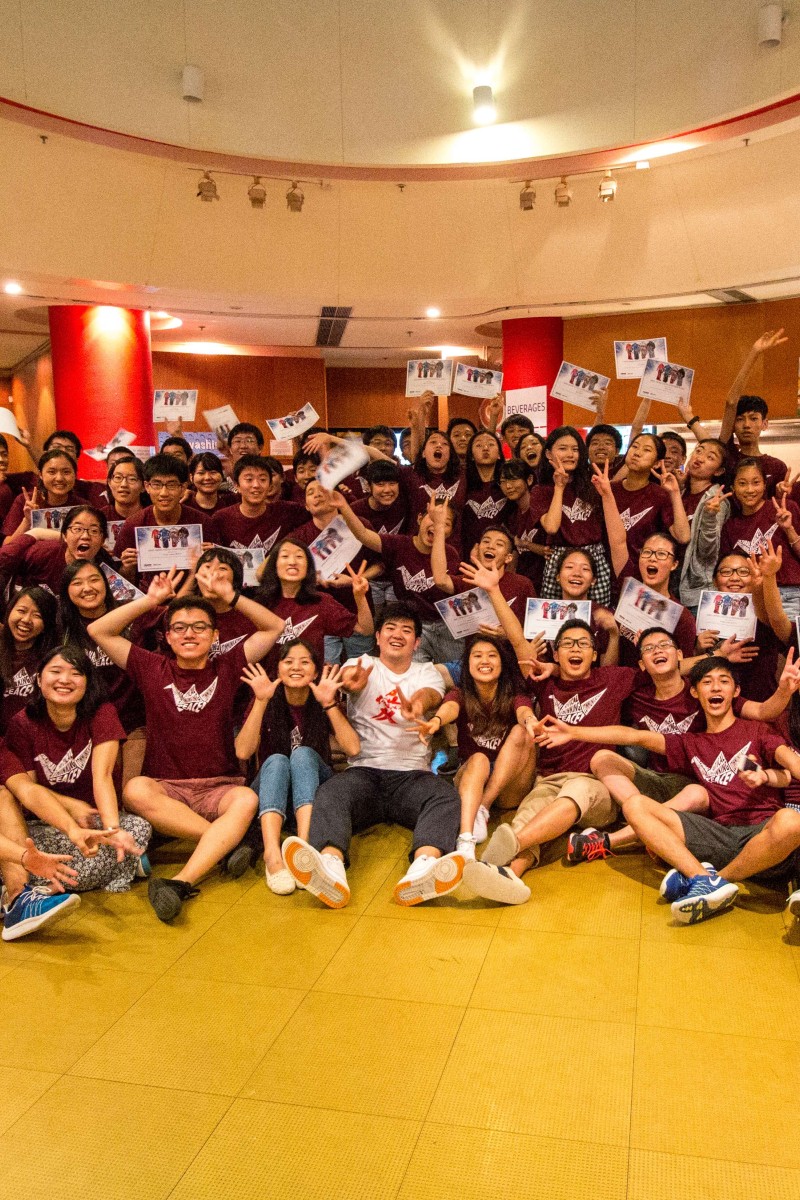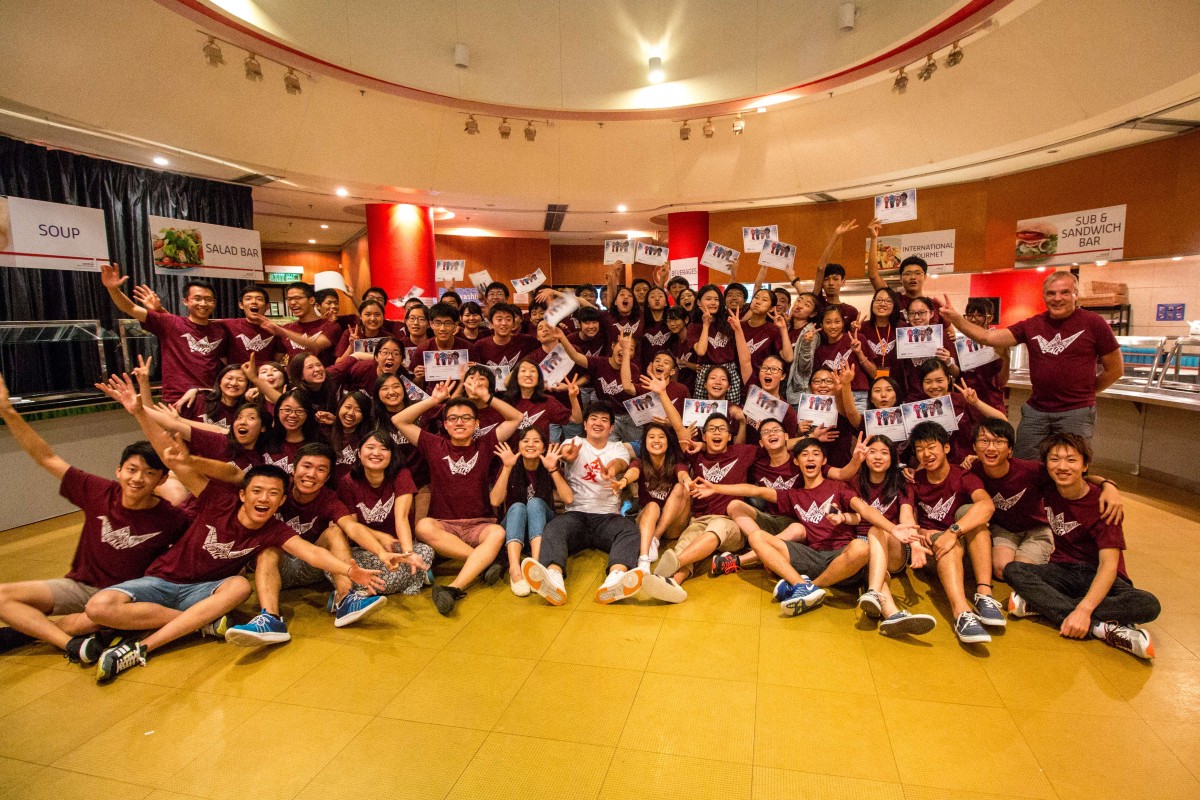
Students from Japan, HK and the mainland took part in the Sino-Japan Youth Conference to discuss the possibility of war – and find ways to avoid it
 Forty students attended the event at Li Po Chun United World College.
Forty students attended the event at Li Po Chun United World College. It’s been a tough year for international relations in Asia, and fortunately peace between the nations is still holding strong. But at last month’s Sino-Japan Youth Conference, 40 secondary students had to imagine the unthinkable: what would happen if China and Japan went to war?
Students from Hong Kong, Japan, and the mainland came together for the annual week-long camp at Li Po Chun United World College (UWC), with a hope of fostering mutual respect, open-mindedness, and peace and friendship in the region.
In the first morning session, the students were randomly split into six teams that represented different political parties in China or Japan. These randomised groups forced the students to be open-minded, as they might now be representing a country other than their own. Once in their groups, they had to pitch political platforms to gain votes from various stakeholders in an election.
But in the afternoon, the “politicians” returned from lunch to find out that China and Japan had gone to war over disputed islands. To attack, or to defend? That was the question every party had to ask themselves.
Joanne Cao, a 16-year-old student from Suzhou High School in Jiangsu Province, said the conference wasn’t easy, because everything around her was new and unfamiliar, and the sessions required a lot of talking, something she says she isn’t good at it. What’s more, everything was done in English, which is a second language for both her and her teammates from different parts of the world, so it often took a lot of effort to understand each other.
“I think we should watch more news in our daily life and get familiar with it,” says Joanne, “and join more debating activities, too, because we always think in only one way, but there’s actually a lot of ways.” She adds: “And we can improve our language skills, too!”
Mako Ohara, 14 year-old Japanese participant from American International School Hong Kong agrees it was difficult, but says she gained a lot, trying different ways to communicate with the “politicians” from other countries. “It’s a great experience,” she said.
During the week of the conference, participants stayed on campus, where they shared dorms with students from different countries. Each day, they took part in debates, “wars”, and explored Hong Kong.
It’s a challenge for the organisers to put the event together, and make it meaningful for students from so many different backgrounds and cultures.
“All the participants come from very different education systems, so when we introduce different opinions to them, we try to make sure that we don’t shock them too much at first,” says 18 year-old Damian Wu Yuen-sing, an organiser who just graduated from UWC. “We want to give them a chance to slowly step out of their comfort zone and express their true feelings and opinions.”
“It’s also a really meaningful journey for us organisers in terms of personal development,” says Michi Lo, another Hong Kong student organiser from UWC. “We discovered a lot of our strengths and weaknesses and how we can use these traits to make this the best possible conference. There are not only bonds formed between the participants, there are also a lot of really good friendships created between the organisers as well.”
China’s relationship with Japan is a big topic these days, but participants were also encouraged to examine other global issues. “At our conflict management session we used Sino-Japanese issues as the example, but through that, students learn to resolve conflicts with many possible solutions,” says Roger Dai Tianxing, 19-year-old organiser from the mainland who studies at Lester B Pearson United World College of the Pacific in Canada. “We want them to have a deeper understanding of Sino-Japanese issues, but we also provide them with the skills and needs to interpret and analyse other global issues as well.”
And that is the beauty of a conference like this, says Haruko Tateyama, a 19-year-old organiser from Japan, who studies at UWC.
“This conference brings people together, especially people with different backgrounds, which is so important,” she says. “A lot of them are more aware of issues, so when they go back home they will try to share their experience and what they have learned with others, and in the future I hope they can bring these into their jobs, too.”
Jennifer Lam, a 16-year-old student from Maryknoll Convent School, said she learned a lot through the language of politics, such as when “one group says ‘invade’, but the other group uses the word ‘advance’. That’s a really big difference.”
Jennifer took the message of the conference to heart. “There has been a lot of Sino-Japanese issues this year, and I think as a young person, I am still not influencing many people ,” she says, “But I’ll try my best to spread the message of peace among my friends... at least i’ll try to promote the concept of peace at school.”